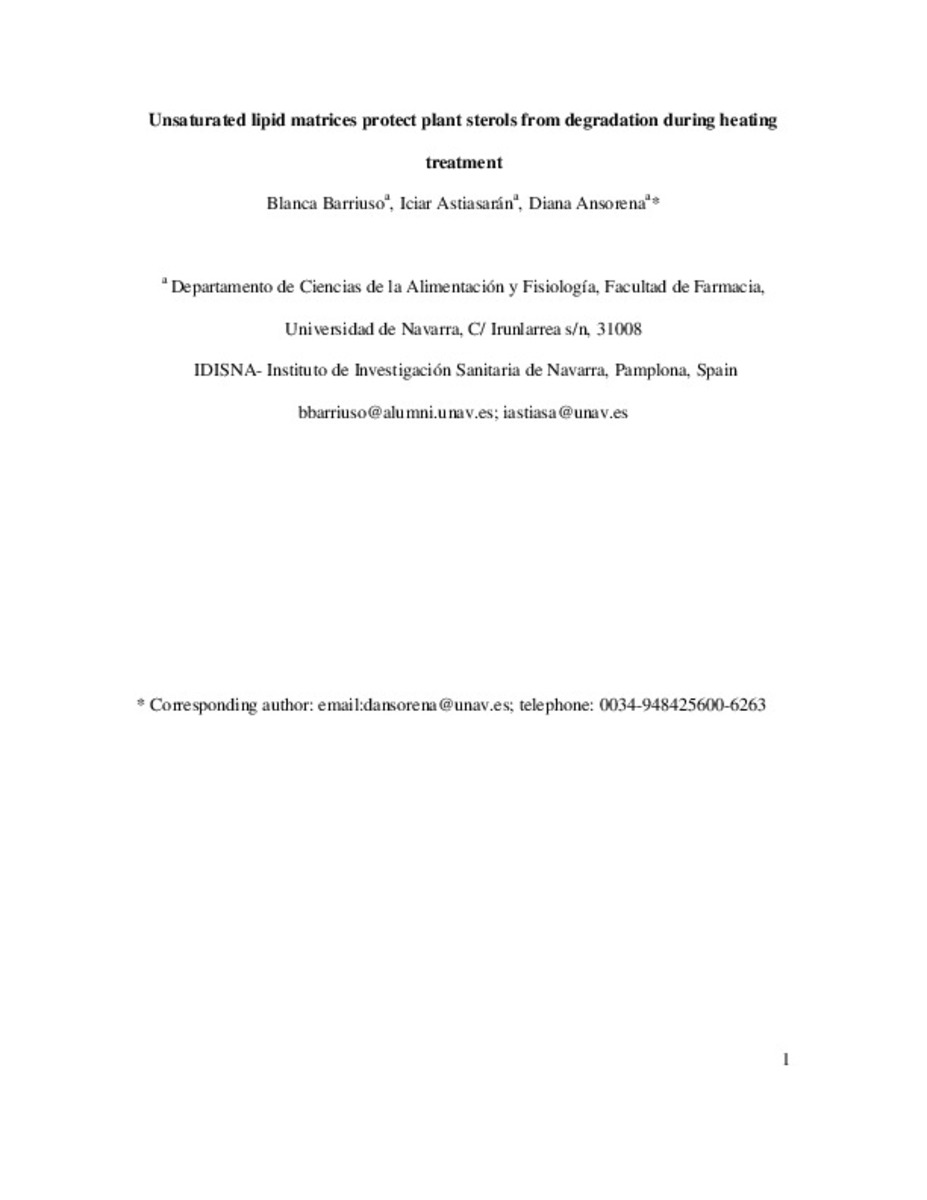Unsaturated lipid matrices protect plant sterols from degradation during heating treatment
Palabras clave :
POPs
Sterol oxidation products
Oxysterols
Oxidation
Sitosterol
Phytosterols
Fecha de publicación :
2016
Cita:
Barriuso B, Astiasarán I, Ansorena D. Unsaturated lipid matrices protect plant sterols from degradation during heating treatment. Food Chemistry. 2016;196:451–458
Aparece en las colecciones:
Estadísticas e impacto
0 citas en

0 citas en

Los ítems de Dadun están protegidos por copyright, con todos los derechos reservados, a menos que se indique lo contrario.











